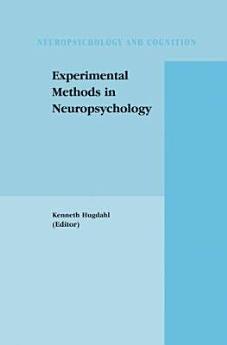Experimental Methods in Neuropsychology
Kenneth Hugdahl
2012년 12월 · Neuropsychology and Cognition 21권 · Springer Science & Business Media
eBook
235
페이지
report검증되지 않은 평점과 리뷰입니다. 자세히 알아보기
eBook 정보
Clinical neuropsychology typically employs large standardized test-batteries to cover the cognitive deficits caused by brain lesions and neurodegenerative diseases. The neuropsychologist moves between three levels of explanation; the behavioral level, the cognitive level and the brain level. The behavioral level is measured as actual performance on a test, i. e. the obtained test score. The cognitive level refers to the underlying cognitive processes that are reflected in the test scores. The brain level, finally, refers to the neural underpinnings and substrates to the cognitive processes. The recent decades have witnessed a dramatic increase in our knowledge about cognitive processes and the underlying neural substrates. Experimental techniques and paradigms have played an important role in the accumulation of new knowledge in this field. Thus, there is a need to present a collection of experimental paradigms and techniques to neuropsychology. Some of these paradigms and techniques have however a long history in neuropsychology, like dichotic listening and EEG measures, while others are new and novel to most neuropsychologists like animal model paradigms and brain imaging and brain stimulation. Experimental techniques typically aim at discovery of causal relationships and with a focus on search for mechanisms. In the first chapter, Merill Hiscock presents an overview of experimental techniques and its adaptation in clinical neuropsychology, with a focus on behavioral techniques and methods.
이 eBook 평가
의견을 알려주세요.
읽기 정보
스마트폰 및 태블릿
노트북 및 컴퓨터
컴퓨터의 웹브라우저를 사용하여 Google Play에서 구매한 오디오북을 들을 수 있습니다.
eReader 및 기타 기기
Kobo eReader 등의 eBook 리더기에서 읽으려면 파일을 다운로드하여 기기로 전송해야 합니다. 지원되는 eBook 리더기로 파일을 전송하려면 고객센터에서 자세한 안내를 따르세요.







